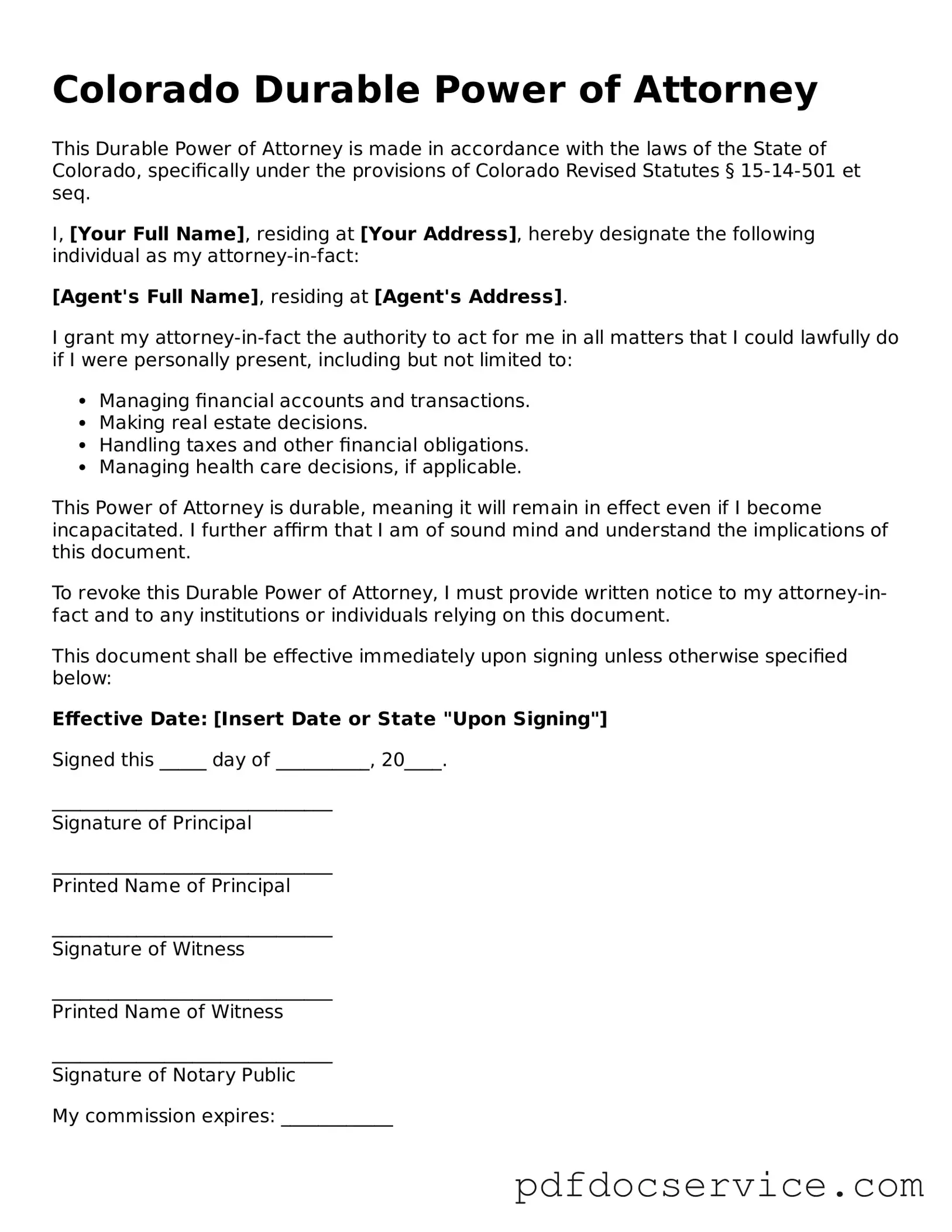Printable Durable Power of Attorney Template for Colorado
A Colorado Durable Power of Attorney form is a legal document that allows an individual to appoint someone else to make decisions on their behalf, particularly regarding financial and medical matters, when they are unable to do so themselves. This form ensures that your wishes are respected and that a trusted person can act in your best interest during challenging times. Understanding its importance can help you make informed decisions about your future care and financial management.
Open Durable Power of Attorney Editor

Printable Durable Power of Attorney Template for Colorado
Open Durable Power of Attorney Editor

Open Durable Power of Attorney Editor
or
Get Durable Power of Attorney PDF
Finish the form now and be done
Finish Durable Power of Attorney online using simple edit, save, and download steps.